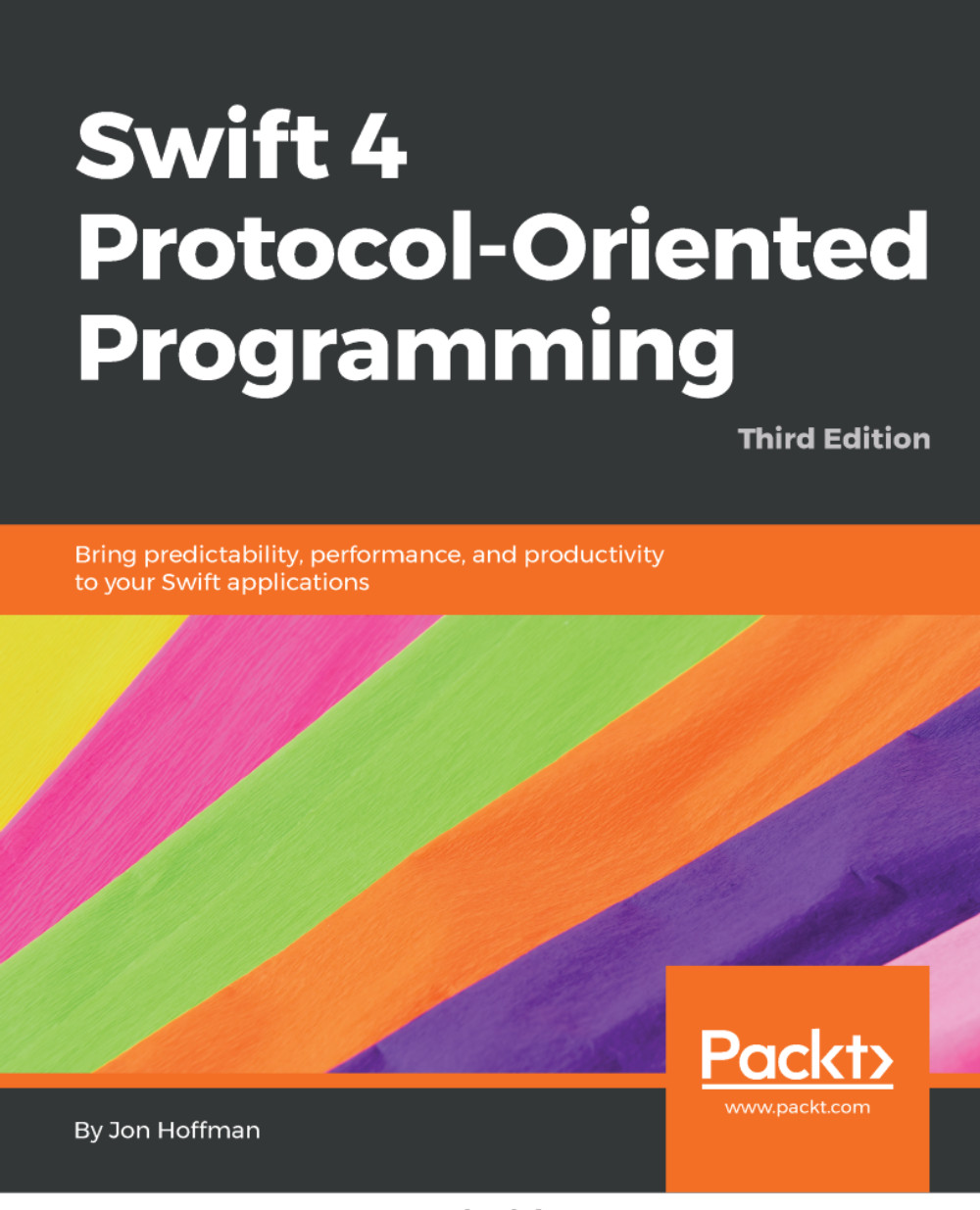Type casting with protocols
Type casting is a way to check the type of an instance and/or to treat the instance as a specified type. In Swift, we use the is keyword to check whether an instance is of a specific type and the as keyword to treat an instance as a specific type.
The following example shows how we would use the is keyword:
if person is SwiftProgrammer {
print("(person.firstName) is a Swift Programmer")
} In this example, the conditional statement returns true if the Person instance is of the SwiftProgrammer type or false if it isn't. We can use the where statement in combination with the is keyword to filter an array to only return instances of a specific type. In the next example, we filter an array that contains instances of the Person protocol and have it only return those elements of the array that are instances of the SwiftProgrammer type:
for person in people where person is SwiftProgrammer {
print("(person.firstName) is a Swift Programmer")
} Now let's look at how we would cast an instance to a specific type. To do this, we can use the as keyword. Since the cast can fail if the instance is not of the specified type, the as keyword comes in two forms: as? and as!. With the as? form, if the casting fails it returns a nil. With the as! form, if the casting fails a runtime error is thrown; therefore, it is recommended to use the as? form unless we are absolutely sure of the instance type or we perform a check of the instance type prior to doing the cast.
The following example shows how we would use the as? keyword to attempt to cast an instance of a variable to the SwiftProgammer type:
if let _ = person as? SwiftProgrammer {
print("(person.firstName) is a Swift Programmer")
} Since the as? keyword returns an optional, in the last example we could use optional binding to perform the cast.
Now let's see how we can use associated types with protocols.



 Free Chapter
Free Chapter
